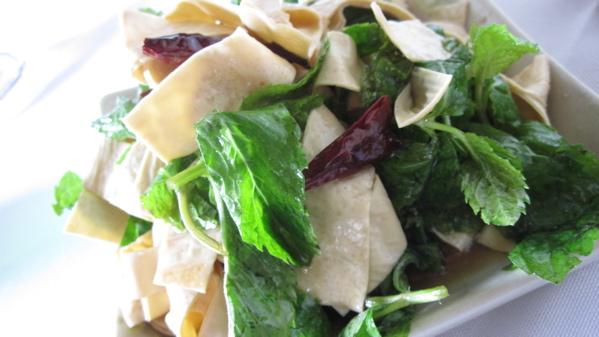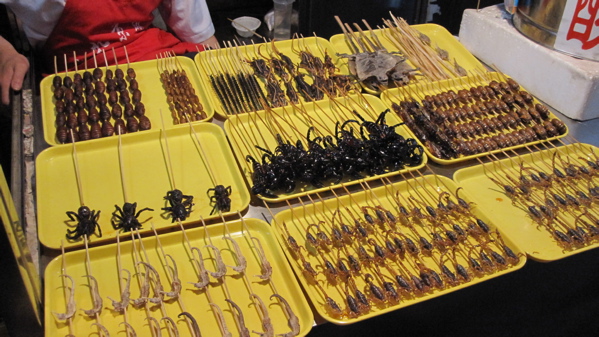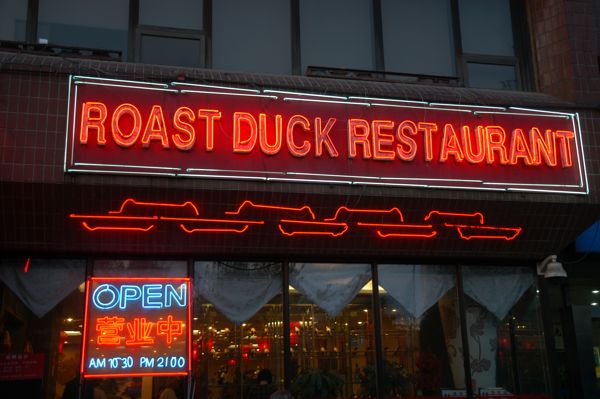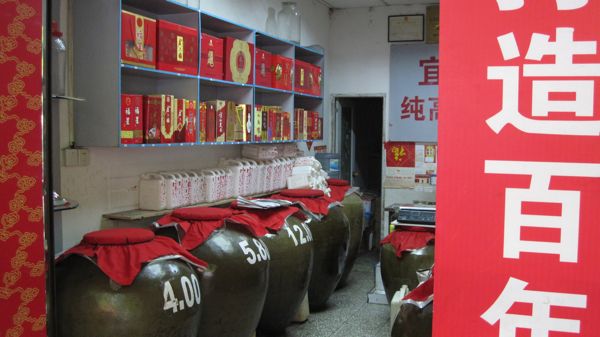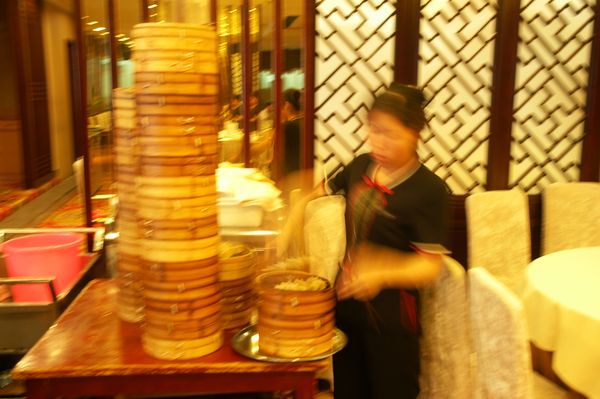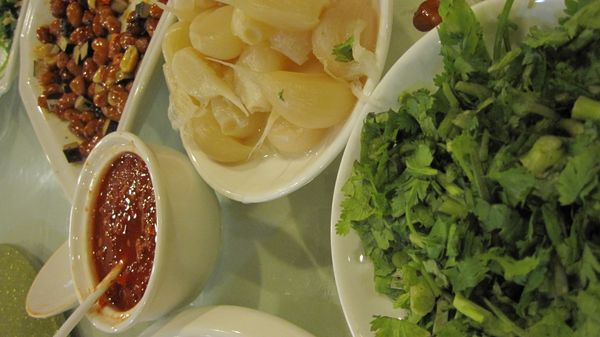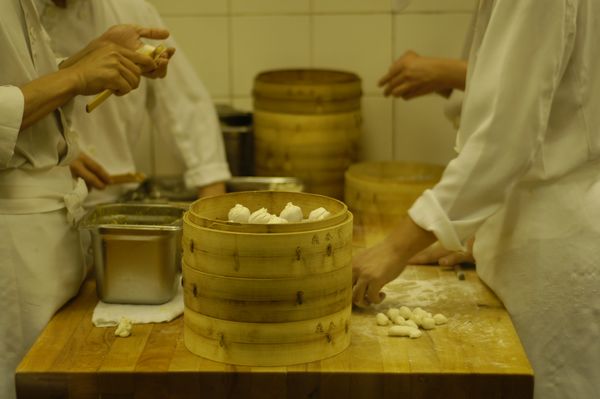China
For our last day in China, Jay and I wanted to try something different. We’d sampled a lot of pretty standard “Chinese food” – a few too many greasy, fried meats and vegetables passed around a Lazy Susan – but we hadn’t tried cuisine from the Yunnan province in the far southeast of China, which shares a border with Vietnam, Laos, and Burma.
Jay and I had heard tales of the legendary Beijing night market – that they sold still-live animals, blood and hearts, and other unappetizing tidbits. So of course we had to go.
If Beijing could be said to have one signature dish, it would have to be Peking duck. Quanjude was actually one of the first Peking duck restaurants to open in the city, in 1864. Their claim to fame is that they cook the ducks by hanging them in a large oven for about 45 minutes, over an open fire that uses the hardwood of peach or pear trees.
Despite 2000 years of struggle to unify the country's various peoples -- from Emperor Qin's forming of the Dynastic period to Mao's forcing of the Cultural Revolution -- there still is great division on one of the most important topics -- wine. Ordering a glass of wine in this country is akin to Russian roulette with a .45 pointed at your taste buds. Depending on what region you are visiting and the ethnicity of the server you are ordering from you might get variations from a clear moonshine-like liquor to a cloyingly sweet grape-based wine beverage.
One of the specialties in Xi’an is the dumpling, and one of the best places to sample the dumpling is De Fa Chang, where you can get an 18-course dumpling banquet. (That’s right – 18 courses, though thankfully each course consists of only one dumpling.)
Xi'an's Lao Sun Jia is famous for its yangrou paomo, also known as lamb and bread soup, a traditionally Muslim dish. Though the servers speak little to no English, there's a huge menu of other foods with pictures you can point at, but you really don't need to order much else since the soup is so satisfying.
We couldn't leave Shanghai without sampling one of the city's specialties, xiaolong bao, or soup dumplings. We heard from locals and by researching online that Din Tai Fung was one of the best places to try the dumplings, despite being a Taiwanese chain located in a mall.
Shanghai's 1221 restaurant makes a great choice for an introduction to sugar-based Shanghainese cuisine.
WINEDERLUST WANDERINGS //
WINEDERLUST WISDOM //
“I just don’t see Big Wine allowing labels on wine reading something like this: This wine was dealcoholized by reverse osmosis and smoothed out with micro-oxygenation. Ingredients: Water, alcohol, grapes, chestnut tannin, oak extract, oak dust, genetically modified yeast, urea, enzymes, grape juice, tartaric acid, bentonite, and Velcorin.” – Alice Feiring, The Battle for Wine and Love or How I Saved the World from Parkerization
